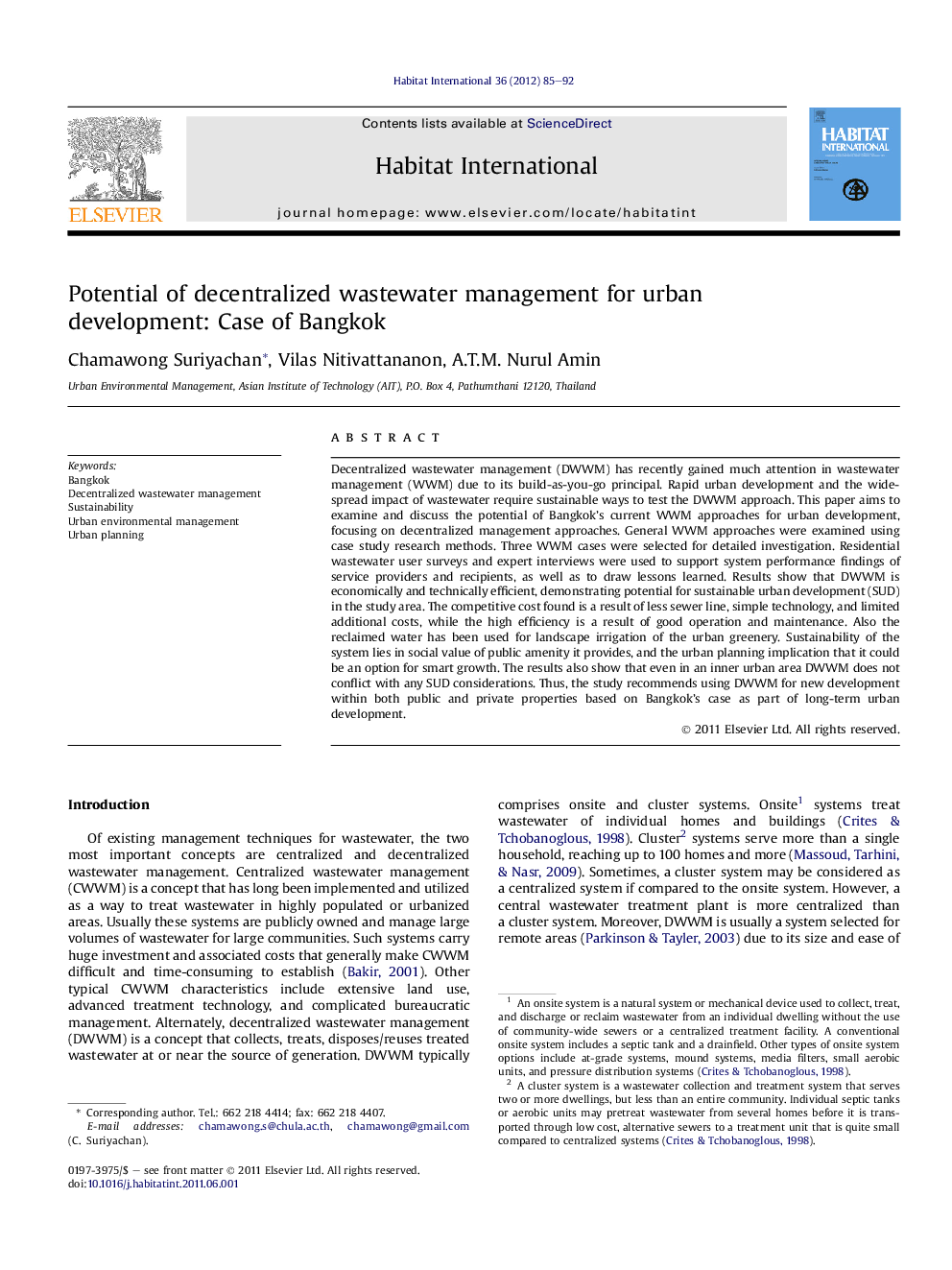| Article ID | Journal | Published Year | Pages | File Type |
|---|---|---|---|---|
| 1048122 | Habitat International | 2012 | 8 Pages |
Decentralized wastewater management (DWWM) has recently gained much attention in wastewater management (WWM) due to its build-as-you-go principal. Rapid urban development and the widespread impact of wastewater require sustainable ways to test the DWWM approach. This paper aims to examine and discuss the potential of Bangkok’s current WWM approaches for urban development, focusing on decentralized management approaches. General WWM approaches were examined using case study research methods. Three WWM cases were selected for detailed investigation. Residential wastewater user surveys and expert interviews were used to support system performance findings of service providers and recipients, as well as to draw lessons learned. Results show that DWWM is economically and technically efficient, demonstrating potential for sustainable urban development (SUD) in the study area. The competitive cost found is a result of less sewer line, simple technology, and limited additional costs, while the high efficiency is a result of good operation and maintenance. Also the reclaimed water has been used for landscape irrigation of the urban greenery. Sustainability of the system lies in social value of public amenity it provides, and the urban planning implication that it could be an option for smart growth. The results also show that even in an inner urban area DWWM does not conflict with any SUD considerations. Thus, the study recommends using DWWM for new development within both public and private properties based on Bangkok’s case as part of long-term urban development.
► Three Decentralized Wastewater Management (DWWM) cases are examined. ► DWWM has proven economically and technically efficient, and has potential for sustainable urban development. ► Cost effective is a result of less sewer line, simple technology, and limited additional costs. ► High efficiency is caused by the good operation and maintenance and reuse of reclaimed water. ► Even in an inner urban area, DWWM does not conflict with any sustainable development considerations.
